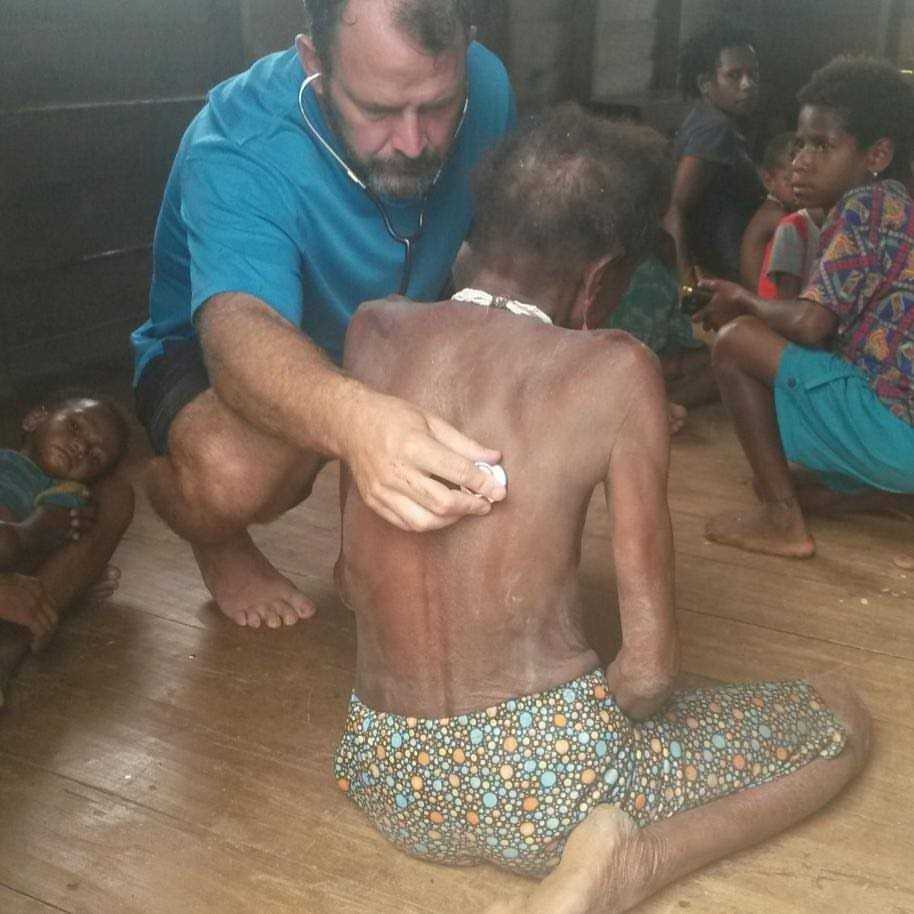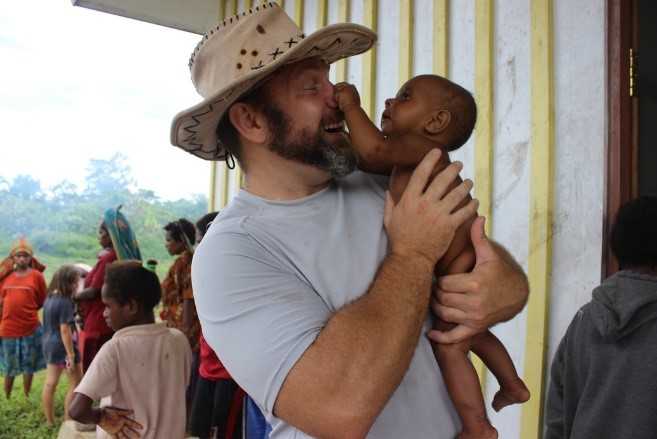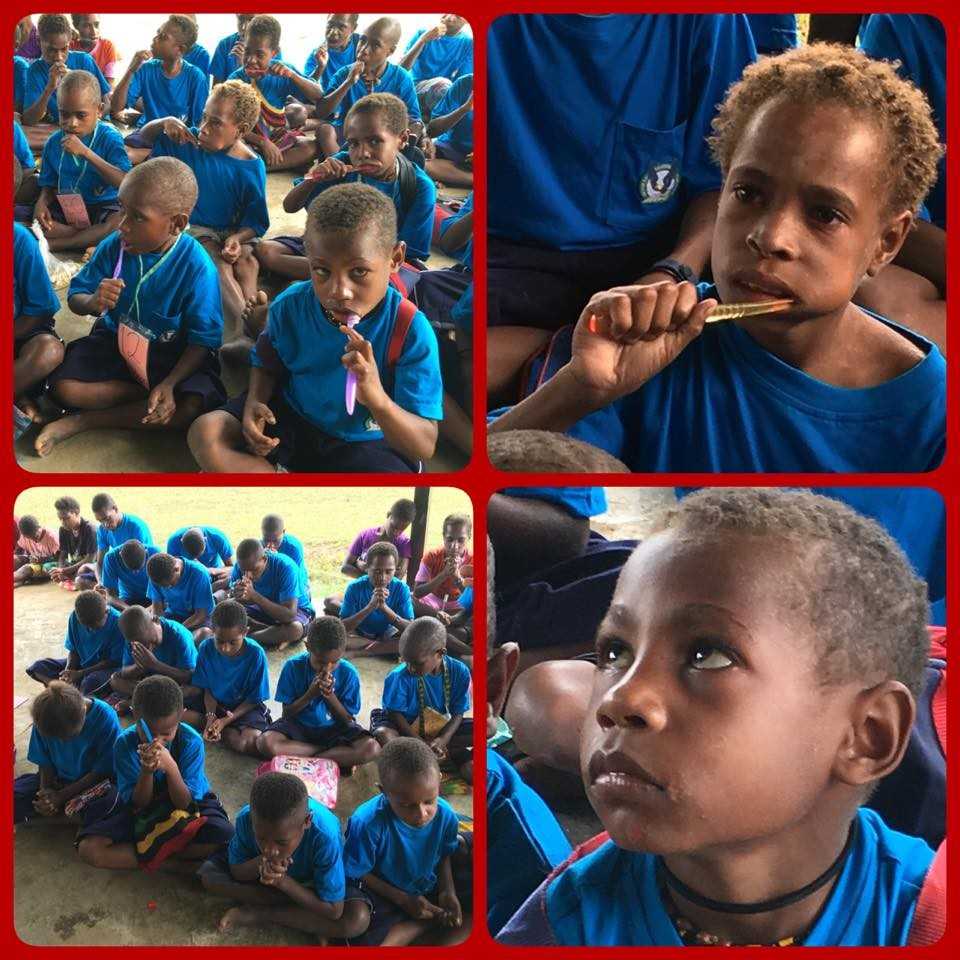Pastor Responds to Claims That Papuan Korowai Tribe’s Way of Life Being ‘Wiped Out’ by Christian Missionaries
 A pastor and missionary who has lived among the Korowai tribe in Papua, New Guinea for 12 years has responded to claims from a Russian photographer who looked for tribal members as he hiked through the rainforest during a 15-day visit that Christian missionaries are wiping out the Korowai and their way of life.
A pastor and missionary who has lived among the Korowai tribe in Papua, New Guinea for 12 years has responded to claims from a Russian photographer who looked for tribal members as he hiked through the rainforest during a 15-day visit that Christian missionaries are wiping out the Korowai and their way of life.
“The media has been propagating a false view of the Korowai for years,” Trevor Johnson, a licensed nurse and missionary with HeartCry Missionary Society, wrote in a response that he shared with Christian News Network. “They are infatuated with the ‘primitive’ and are downright disappointed to see the Korowai advance.”
“Let me ask directly: why should [people] be so mad that the Korowai are wearing modern clothes? They are the ones who asked for them,” he said. “The Korowai themselves have appealed to Papuan churches and these local indigenous Papuan church members have answered. Many Papuan churches—not Americans, but fellow Papuans—have donated their own clothes to send to the Korowai. Why? Because the Korowai asked for them.”
Several UK outlets have published a report based on the photographs and claims of Maxim Russkikh, 36, a traveler and photographer from Russia who visited Papua earlier in this year in search for what he seemingly thought would be primal tribal people living and hunting in the jungles. He lamented that he was only able to find a few of them and said that many are living in villages instead of tree huts and abandoning their former way of life due to the westernization of Christian missionaries.
Russkikh posted one of his photos to Instagram—one of naked men in the jungle—writing that until the 1970s, the tribe had no contact with the Western world and most likely did not know anyone else existed beside themselves.
“Many of the Korowai still believe today that outsiders carry demons and evil spirits, and some of them still have probably never seen a white person,” he claimed. “The Korowai is one of the last known tribes in the world to have been cannibals, they believe that it is necessary to kill and eat a person they believed had been taken over by a khakua—means ‘demon.”
Other similar photographs are posted to Media Drum World for purchase, and have been shared by UK outlets such as The Daily Mail, Metro and The Sun.
Headlines included “Ancient Tribe on the Brink of Being Wiped Out by Christian Missionaries,” “Fight for Survival: Ancient Jungle Tribe of Super-Strong Hunters Close to Being Wiped Out by Christian Missionaries,” and “Indonesian Communities in Remote Corner of New Guinean Jungle Slowly Abandon their Traditional Life After Being Contacted by Missionaries.”
View the links here, here and here.
“Korowai have managed to survive in the harsh environment of the rainforest over thousands of years keeping its traditional culture alive,” Russikh said, according to The Daily Mail, also stating that the people are skilled hunters, who sometimes will leave their homes for days to hunt for “rats, pigs, birds and fish.”
“And it seems like right now they are disappearing day by day,” he remarked. “They are surrounded by the dozens of missionary villages supported by the Indonesian government with the only purpose to introduce the western culture and spiritual values.”
“Hundreds of Korowai have moved already from the jungles to newly constructed missionary settlements and more are coming. Often believing that the tribes are ‘primitive’ and living pitiful lives ‘in the dark,’ the missionaries’ ultimate aim is to convert them to Christianity,” Russikh said.
He called for the proposal of international law that protect the tribe and others—suggesting that the Karowai’s culture needs to be preserved and undisturbed.
“There are less than a hundred uncontacted small tribes around the world and they need to be protected by international law. Uncontacted tribes are the most vulnerable people on earth, especially in West Papua, and they need to survive,” he opined.
However, Johnson says that the picture being painted of the Korowai does not fit reality, and that it is actually the Korowai that are asking those they meet for help as they would like to enjoy food, clothing and other amenities just like any other human. Johnson does not like to use terms such a “primitive” when speaking about the Korowai, as he sees such descriptions as being derogatory.
“The media uniformly reports on the Korowai in this similar hyper-sensationalistic manner that either bashes missionaries, exalts the ‘noble savage,’ myth, or exploits the Korowai in a way which seems to portray them in a ‘human zoo’ setting,” he said. “The Korowai are almost never portrayed as humans who are aspiring to do better in life and who hope and dream … to advance in life, just like us.”
“Tired tropes of the tribe being ‘Stone Age’ or ‘primitive’ or ‘ancient’ or ‘super-strong’ infect just about every media article on the Korowai and dehumanizes the Korowai by portraying them as a world apart from us,” he lamented. “They are people, just like you and me. … Korowai life is a life full of pain, deprivation, illness, death, malnutrition, and hardship. They want a better life. ”
Johnson was invited by The Evangelical Church of Indonesia (GIDI) and the Korowai people, and says that as he was considering his options for mission work, various tribes in other regions also urged him to live among them and provide practical help. Since that time, he has assisted with providing medical care to the people—to save the lives of those who otherwise would have died from malaria and tuberculosis—and to address malnutrition and illiteracy, offering schooling, farming lessons and instructions on personal hygiene.
“We love the Korowai people. We regularly meet with the Korowai as a community and write their concerns and often deliver them to the government. We believe in preserving their voice and autonomy,” Johnson explained. “We’ve helped arrange teachers and healthcare workers to this region before the government ever took initiative to do so. We’ve tried our best to introduce nutritious crops and livestock like chickens to each post, and also medicines, and supplemental foods during times of flood or drought.”

“I’ve spent approximately one-third of a million towards medical and educational needs to help prevent needless deaths from malaria and tuberculosis in my region and we’ve housed sick Korowai in my home for months at a time,” he continued. “Many who would have normally died have been saved with medicines provided by the church and missionaries.”
“Through the appeals of the church and missionaries, the government has also taken on a more active role and are also helping more than ever among the Korowai. Never before have I seen so many healthy babies among the Korowai as I have these past three years.”
Johnson said that contrary to the reports, the Korowai are not going extinct, but rather are being preserved due to the help of missionaries who are assisting with medical needs, immunizations, food and hygiene.

“The Korowai are actually about 3,500 to 4,000 souls and this amount has stayed stable or has increased since our missionary presence. They are not dying off. In fact, we have more infants and babies born and healthy than ever before!” he outlined. “The missionaries are contributing to a population increase.”
Johnson said that while efforts to provide help to the Korowai have included the formation of villages as Russikh stated, the people are also “encouraged them to keep at least a partial residence in the treehouse clusters and to keep planting crops of sago, pandanus and bananas around these jungle treehouses.” Those who work with the Korowai also have sought to preserve their language, songs, and customs—and everything that is good about the people.
But there are concerning practices that are being addressed as well—such as child marriage—and Johnson sees it as a positive that efforts are being made to turn the people from harmful behaviors, asking, “[W]hy are missionaries evil for wanting to eliminate child marriage?”

“The past cannibalism? Should we preserve that? The clan warfare and witch-killings? Should that have been preserved?” he asked. “We are trying to end child-marriages; should we try to preserve 8-year-old girls being forcibly taken and given to 40-year-old men? The occasional infanticide of unwanted children? Should that be preserved? Illiteracy and rampant disease; should we preserve those things?”
Johnson outlined that all the help that is offered is done with no strings attached, as his team does not force anyone to convert. He urged Russikh to spend more than just two weeks among the people and to truly know them, and offered a personal invitation to Russikh to stay at his house and see exactly what the missionaries are doing.
“See the work for yourself so you can better evaluate our work,” Johnson wrote. “We can trek together to actual occupied houses instead of the deserted clusters of the abandoned sagu feast houses. You can eat and sleep with the Korowai and spend some time among them and ask them yourself about all the good and bad things happening in their land. We have nothing to hide; we welcome your presence and we strive to do all things transparently. Come be our guests.”
Anthropologist Dr. Rupert Stasch, who has visited the area where the Korowai live for approximately 25 years for work-related purposes, and has written about the people, is stated to have remarked about the asserted claims against missionaries:
“The well-being of Korowai people is truly under threat, but missionaries are not the danger. The challenges Korowai face are staying in control of their land, surviving old and new diseases while lacking good access to medical care, and participating in the frontier-town cash economy in ways that are not ultimately harmful to individuals and families, such as by gaining access to education that will help them deal successfully with new outside powers, new attractions, and immigrant Indonesians.”
Become a Christian News Network Supporter…
 Dear Reader, has ChristianNews.net been of benefit and a blessing to you? For many years now, the Lord has seen fit to use this small news outlet as a strong influential resource in keeping Christians informed on current events from a Biblical worldview. Despite Facebook’s recent algorithm changes, which has limited our readership, and, as a result, has affected operational revenue, we continue to strive to bring you the news without compromise and to keep Christ in focus. If you have benefited from our news coverage, would you please prayerfully consider becoming a Christian News supporter by clicking here to make a one-time or monthly donation to help keep the truth widely and freely published and distributed? May Christ continue to be exalted through this work!
Dear Reader, has ChristianNews.net been of benefit and a blessing to you? For many years now, the Lord has seen fit to use this small news outlet as a strong influential resource in keeping Christians informed on current events from a Biblical worldview. Despite Facebook’s recent algorithm changes, which has limited our readership, and, as a result, has affected operational revenue, we continue to strive to bring you the news without compromise and to keep Christ in focus. If you have benefited from our news coverage, would you please prayerfully consider becoming a Christian News supporter by clicking here to make a one-time or monthly donation to help keep the truth widely and freely published and distributed? May Christ continue to be exalted through this work!





Comments are closed.